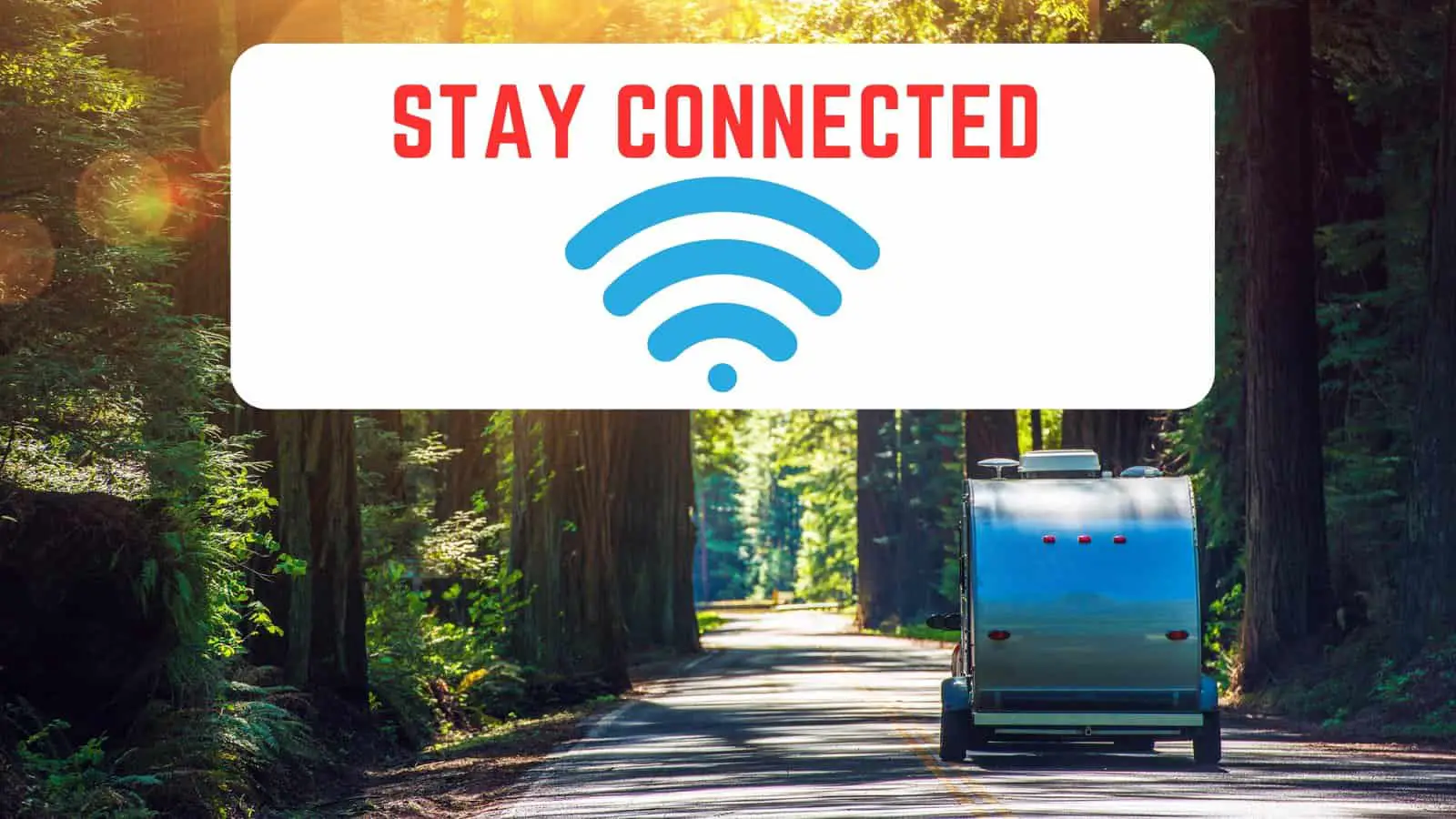Traveling with a trailer is an amazing experience, providing you with the freedom to explore and create unforgettable memories. One essential aspect of modern traveling is staying connected to the internet. With that in mind, let’s dive into the best ways to stay online while you’re on the road.
1. Choose the Right Mobile Hotspot
A mobile hotspot is a device that converts cellular data into a Wi-Fi signal, providing internet access to multiple devices. When choosing a mobile hotspot for your trailer adventures, consider the following factors:
- Data Plan: Opt for a carrier with a generous data plan that meets your needs without breaking the bank.
- Battery Life: A long-lasting battery is essential, especially if you plan on using your hotspot frequently.
- Coverage: Make sure your carrier has good coverage in the areas you’ll be traveling to.
2. Maximize Your Signal with Antennas and Boosters
A weak cellular signal can be a problem when trying to stay connected on the road. Here are some tips to help you maximize your signal strength:
- Cellular Signal Boosters: These devices amplify weak cellular signals, improving your connection. Check out our top picks for signal boosters suitable for trailers.
- Directional Antennas: Mount a directional antenna on your trailer’s roof to help focus the signal towards nearby cell towers.
- High-Gain Antennas: Increase the range of your mobile hotspot with a high-gain antenna that captures weaker signals.
3. Consider Satellite Internet
For travelers who often venture to remote locations, satellite internet can be a reliable alternative to cellular networks. Some advantages of satellite internet include:
- Global Coverage: Unlike cellular networks, satellite internet is available almost anywhere on Earth.
- Consistent Speeds: Satellite internet generally offers stable connection speeds, regardless of your location.
On the downside, satellite internet can be more expensive than traditional cellular plans, and equipment costs may be high. However, for those who require consistent internet access in remote areas, it may be worth the investment.
4. Find Free Wi-Fi Spots
When traveling with your trailer, you can often find free Wi-Fi spots to help you stay connected. Some places to look for free Wi-Fi include:
- Campgrounds: Many campgrounds offer free Wi-Fi to their guests. Check their website or inquire upon arrival.
- Public Libraries: Libraries often provide free Wi-Fi to visitors.
- Coffee Shops and Restaurants: Some businesses offer free Wi-Fi to customers. Don’t forget to grab a bite or a drink while you’re there!
To help you find Wi-Fi spots on the go, download a [Wi-Fi finder app] for your smartphone, which can help you locate nearby Wi-Fi networks even when you’re offline.
5. Use a VPN for Secure Connections
When connecting to public Wi-Fi networks, it’s important to prioritize your security and privacy. Using a Virtual Private Network (VPN) is an effective way to protect your data and maintain privacy while browsing. Some benefits of using a VPN include:
- Encrypting Data: A VPN encrypts your internet traffic, making it more difficult for hackers to access your information.
- Hiding Your IP Address: By masking your IP address, a VPN helps you maintain anonymity while browsing.
- Bypassing Geographical Restrictions: Access content that may be blocked in certain locations by connecting to a VPN server in another country.
6. Utilize Tethering on Your Smartphone
In a pinch, you can use your smartphone as a mobile hotspot by enabling tethering. This allows you to share your phone’s cellular data connection with other devices. Here’s how to get started:
- Enable Tethering: Go to your smartphone’s settings and turn on the “Personal Hotspot” or “Mobile Hotspot” feature.
- Connect Your Devices: Connect your laptop, tablet, or other devices to your smartphone’s Wi-Fi network.
- Monitor Data Usage: Keep track of your data usage to avoid exceeding your plan’s limits.
Keep in mind that using your smartphone as a hotspot can drain its battery quickly, so it’s best to use this method as a backup option.
7. Invest in a Wi-Fi Extender
When you’re parked near a Wi-Fi source but the signal is weak, a Wi-Fi extender can help boost the signal strength. Wi-Fi extenders work by capturing the existing signal and rebroadcasting it, improving your connection. Some advantages of using a Wi-Fi extender include:
- Increased Range: A Wi-Fi extender can help you access Wi-Fi networks that are just out of reach.
- Better Connection Stability: A stronger signal can result in a more stable and faster internet connection.
8. Plan Your Travels Around Connectivity
When planning your trailer adventures, consider researching the availability of internet connectivity in the areas you’ll be visiting. This can help you stay connected and avoid surprises during your trip. Here are some tips for planning:
- Read Reviews: Look for reviews from other travelers about the availability and quality of internet connections at your destination.
- Use Coverage Maps: Consult your carrier’s coverage map to ensure that you’ll have a cellular signal in the areas you plan to visit.
- Research Campgrounds: When selecting campgrounds, prioritize those with reliable Wi-Fi or good cellular coverage.
9. Combine Multiple Internet Sources
For the ultimate connectivity solution, consider using a multi-WAN router to combine multiple internet sources. Multi-WAN routers can connect to various types of networks, such as cellular, Wi-Fi, and satellite, providing you with a more reliable and faster connection. Some benefits of using a multi-WAN router include:
- Load Balancing: Distribute your internet traffic across multiple connections to maximize speed and minimize latency.
- Failover Protection: If one internet source fails, the router automatically switches to another available connection, keeping you online.
- Increased Bandwidth: Combining multiple internet sources can result in higher overall bandwidth, allowing for faster downloads and smoother streaming.
By incorporating these additional methods, you’ll be well-equipped to stay connected to the internet while traveling with your trailer. Whether you’re utilizing smartphone tethering, investing in a Wi-Fi extender, planning your trip with connectivity in mind, or combining multiple internet sources, you’ll be able to enjoy the digital world while exploring the physical one.
Good luck, and happy camping!
Take a look at our article on: RV Customization and Upgrades: Choosing a Mod-Friendly Model

